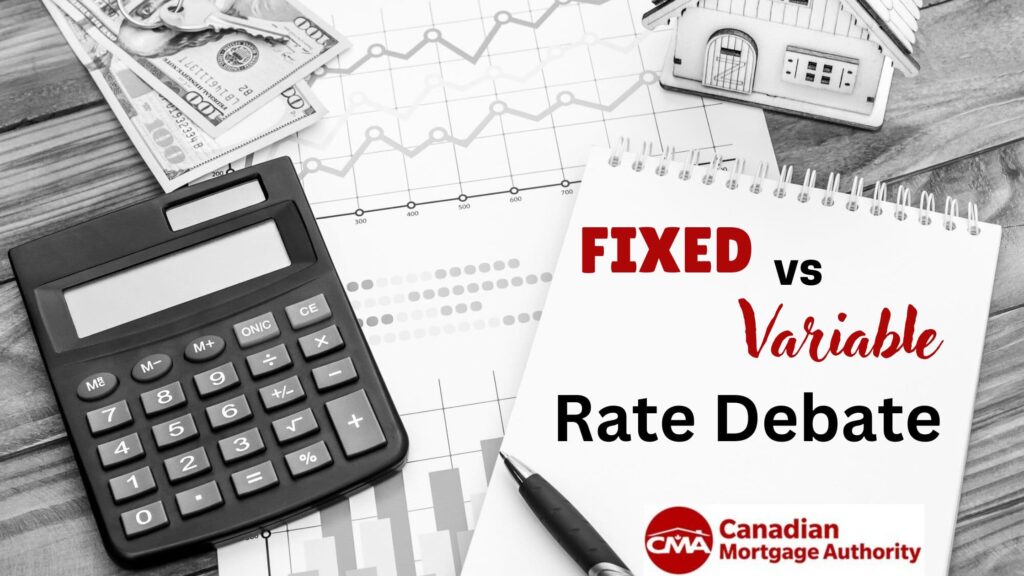Let’s talk about the age-old question of whether it is better to go with a fixed-rate mortgage or to roll the dice on a variable-rate mortgage.
Some Background
Historically, variable rate mortgage holders on average have come out ahead over their fixed rate holding neighbours. Whenever you look at long-term averages, there are always exceptions to the rule. One example of this is during 2020 through 2021 when both fixed and variable rates hit historically low levels. For reference, if you took out a variable rate mortgage you could have had an effective rate as low as 1.15% at that time. If you had elected to secure a 5-year fixed mortgage, you could have had a rate around 1.75%.
The difference between these two options became apparent in 2022 when your variable rate mortgage would have increased to approximately 7%. If instead you had taken the higher fixed rate of 1.75% your rate would still be 1.75% even 5 years later. Obviously in this case, despite historical averages, a fixed-rate mortgage would have been the prudent choice.
Today’s Analysis
Fast forward to today, variable-rate mortgages are in a unique position relative to fixed-rate mortgages, in that there is a very limited spread between the effective rate on a discounted variable rate mortgage and the going rate on a 5 Year fixed-rate mortgage.
Throughout 2024, the Bank of Canada steadily decreased the overnight rate, resulting in financial institutions lowering the prime rate to its current level of 5.45%.
When we look at variable rate mortgages, there are two components, which are the prime interest rate (which fluctuates based on the Bank of Canada overnight rate) and rate discounts that are negotiated by your mortgage broker.
With a current prime rate of 5.45% and an approximate discount of .90%, the effective rate for a variable-rate mortgage today would be 4.55%. When compared to a current 5-year fixed mortgage rate of 4.39% there is only a .16% difference, which is negligible.
How to Choose?
When weighing these two options, the primary benefit of the fixed-rate mortgage is that you have the security of knowing that your interest rate won’t increase during the 5-year term. That being said, the interest rate on the fixed-rate mortgage will also not decrease during the 5-year term.
The primary benefit of the variable rate mortgage is that if the prime rate drops, you will realize the benefit of decreasing interest rates and with a rate differential of just .16%, just one single drop in the prime rate of .25% would then put you ahead of the fixed rate option.
Although not guaranteed, the only question with the variable rate option at this point is not whether the prime rate will drop, but rather by how much and how quickly. While this does introduce some speculation into the equation, it may be the favourable choice for some home owners.
If you are comfortable with accepting a little uncertainty, then a variable rate mortgage is certainly worth strong consideration, and this is your Grimsby mortgage broker’s current recommendation for most clients’ current scenarios, everything else being equal.
For specific advice or recommendations on your personal situation, we strongly suggest reaching out to your mortgage broker for more details. We are happy to chat at any time. You can reach us at (905) 309-8799!

